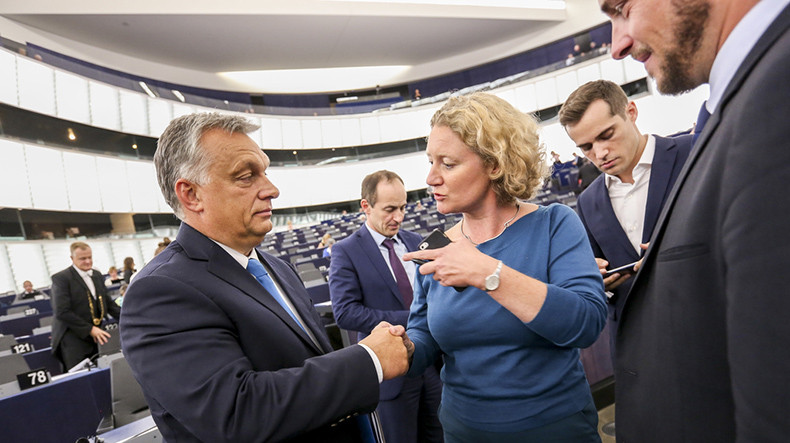
EP triggers sanctions procedure, Hungary calls 'fraud'
The European Parliament on Wednesday (12 September) voted overwhelmingly to trigger a sanctions procedure against Hungary over prime minister Viktor Orban's challenge to EU rules and values on media freedom, migration and rule of law dating back several years.
In the unprecedented move, 448 MEPs voted in favour of launching the so-called 'Article 7' procedure, 197 against and with 48 abstentions, the EP referred Hungary to the other member states to check the health of the country's democracy.
The same procedure is already underway against Poland, this time triggered by the European Commission, EUobserver reports.
With the vote, the EP endorsed the report of Green MEP Judith Sargentini, which said recent developments in Hungary represent a systematic threat to democracy, the rule of law and fundamental rights in the country and constitute a clear risk of a serious breach of EU values.
After the vote, MEPs welcomed the adoption of the report and Sargentini with a standing ovation. This was the second time the EP has compiled a report on Hungary's backsliding on democracy. The first in 2013, however, did not call for the launch of the sanctions procedure.
Now it is up to the Austrian presidency of the EU to launch the procedure of the council of EU countries to examine whether Hungary's government does breach EU rules and values.
Peter Launsky, spokesperson for the Austrian government tweeted that the council "will deal with" the issue - without giving a timeline.
Sargentini said she expected to be invited by the council to present her report and wants European parliament president Antonio Tajani to help her with that.
Fidesz MEP Jozsef Szajer, a close advisor to Orban, called the EP's decision the "petty revenge" of pro-immigration politicians.
"Hungary and the Hungarian people are being condemned because they proved that migration can be stopped and there is no need for migration," Szajer said.
He challenged the legality of the vote saying that not counting abstentions as votes cast is irregular, and they will challenge the vote with the EP's leadership.
"The Sargentini report was not adopted today, because only by violating voting rules was it possible to reach the necessary two-thirds majority laid out in the treaty," Szajer said, arguing that if they had included abstentions, the two-thirds majority would not have been achieved.
"This is an invalid report, that has no legal consequence," Szajer said.
Zoltan Kovacs, spokesperson for the Hungarian government called the vote a "fraud".
The MEP said Hungary was going to challenge the vote in the parliament - an issue that could end up at the EU's top court.
Newsfeed
Videos






























